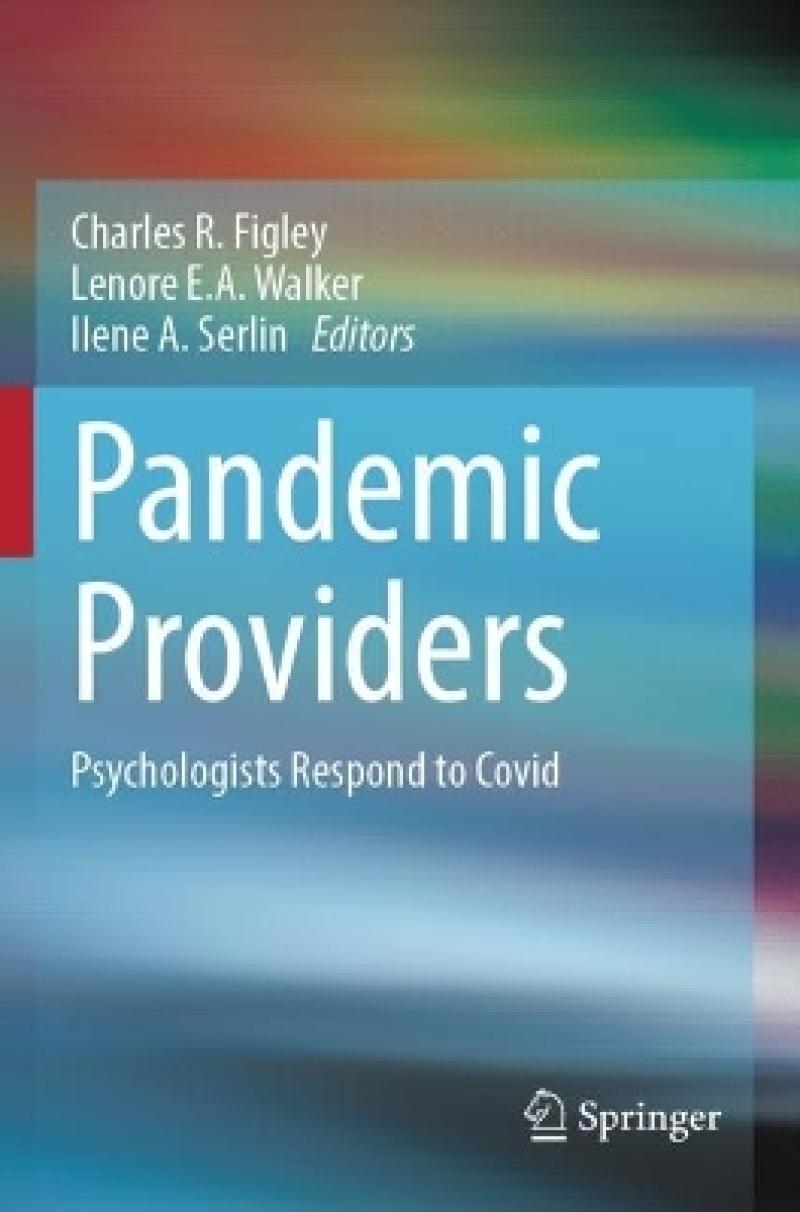Emanating from a working group of the American Psychological Association, this comprehensive volume provides a blueprint for pandemic preparedness for health and mental health professionals. It reviews the actual experiences faced by practitioners during the current Covid crisis, and provides historical context of past health crises, such as the 1918 flu epidemic. Lessons learned from previous health disasters are utilized to provide guidelines and best practices for managing large scale health crises. The goal of this book is to offer the tools for health providers to mobilize, collaborate and provide effective and compassionate services. Relevant to psychologists, psychiatrists, nurses, social workers and others, this volume is an invaluable resource for the present and for the inevitable pandemics to come.
Les mer
Emanating from a working group of the American Psychological Association, this comprehensive volume provides a blueprint for pandemic preparedness for health and mental health professionals. Lessons learned from previous health disasters are utilized to provide guidelines and best practices for managing large scale health crises.
Les mer
Chapter 1. In the Beginning.- Chapter 2. Lessons Learned from the 1918 “Forgotten Flu”.- Chapter 3. Interpersonal Violence During COVID .- Chapter 4. Parenting During a Pandemic.- Chapter 5. Vibrant Older Adults .- Chapter 6. The Hospital, Health and Addiction Workers, Patients and Families.- Chapter 7. Supporting Mental Health Clinicians During the Pandemic .- Chapter 8. International Somatic and Creative Arts Whole Person .- Chapter 9. International Student Collaborations on COVID-19 .- Chapter 10. Telepsychology and Digital Therapeutics.- Chapter 11. International Advancements on Covid-19 Scholarship through the Research Initiatives .- Chapter 12. Toward the Practice of Pandemic Patience and Persistence.
Les mer
Pandemic Providers could not be more timely, given the Covid-19 pandemic and those yet to come. The book’s editors and chapter authors are skilled professionals who had to work their way through uncharted territories, creating a roadmap for the intrepid practitioners who are dealing not only with the current health crisis but also for those who will deal with pandemics yet to come. It is written in a lively, reader-friendly manner that allows its insights to be put to immediate use. —Stanley Krippner, Ph.D., Affiliated Distinguished Faculty, California Institute of Integral Studies. Co-author Post-traumatic Stress Disorder: Biography of a Disease The sudden onset of the pandemic left many psychologists unprepared for the traumas caused by complex and new challenges. This group of psychologists, led by experts from the trauma division of the American Psychological Association, grew into a multidisciplinary group of volunteers who dedicated themselves to learning to address these challenges and to document their learning so that other healthcare providers could benefit. The result is a valuable record of those challenges and lessons learned from multiple perspectives, international affiliates, and creative new methods. The world needs caregivers who can meet the rapidly changing challenges, and this book can help teach and train others to do so. I highly recommend it for graduate students, volunteers, and healthcare providers. —Philip G. Zimbardo, Ph.D., Professor Emeritus Psychology Stanford University, Past President APA and WPA, William James Book of the Year Award In the true spirit of the practitioner-scholar model, this timely compendium based on the work of notable psychologists from around the world offers fresh perspectives to practitioners and researchers to address the consequences of the COVID pandemic and to help them prepare for future ones. —V. K. Kumar, Ph.D., Professor Emeritus, West Chester University of Pennsylvania An outstanding compilation of visionary accomplishments during the Pandemic by extraordinary leaders in the profession. Addressing the unique challenges and opportunities across the life span, the Lessons Learned hold great promise for the future. Interprofessional collaboration, technological innovations, and the importance of therapeutic empathy remain critical. —Pat DeLeon, former APA President
Les mer
Includes a range of age groups Utilizes a whole-person approach Incorporates telehealth practices
Produktdetaljer
ISBN
9783031275821
Publisert
2024-06-09
Utgiver
Vendor
Springer International Publishing AG
Høyde
235 mm
Bredde
155 mm
Aldersnivå
Professional/practitioner, P, 06
Språk
Product language
Engelsk
Format
Product format
Heftet
Biographical note
Charles Figley is the Kurzweg Chair in Disaster Mental Health and Distinguished Professor at Tulane University's School of Social Work. He has published twenty-nine books and more than 300 articles and chapters during his 50-year career. He was named Chair of this Interdivisional Task Force on the Pandemic by the President of the APA’s Division on Trauma Psychology.
Dr. Lenore E. A. Walker is a Professor Emerita from Nova Southeastern University’s College of Psychology. She has written extensively in the area of interpersonal and gender violence, is Chairing the APA Working Group on Professional Practice Guidelines for PTSD and trauma, and testifies and lectures around the world on Battered Woman Syndrome.
Dr. Ilene A. Serlin, BC-DMT is in the independent practice of psychology in San Francisco as a psychologist and dance movement therapist. She was a founding member of the Trauma Division of APA, co-editor of Integrative Care for the Traumatized and Whole Person Healthcare, and trains mental health providers internationally in whole person methods.
